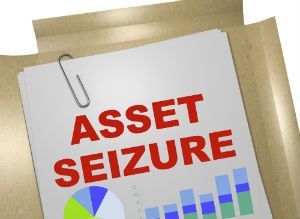
What Should You Know about Property Seizure?
Seizure of property is legal, but laws regarding the seizure of property might vary from state to state. Though the seizure process is similar to repossession it is not exactly the same, so you shouldn’t assume if an asset is protected from repossession that the same will be true for seizure.
To learn more about how repossession works and how it differs from property seizure, check out this information from Edmunds.com.
To seize property, a creditor must file a lawsuit and prove the debt is valid.
If successful, they will be granted a judgment of the court and move forward with the seizure attempt. They must continue to abide by the law, but once the judgment is received there’s a good chance their efforts to seize your property will be successful.
Why Isn’t Seizure of Property More Common?
There are a few reasons why creditors don’t seize property even when you owe them money. One of the biggest reasons is because it’s an expensive process for them.
In order to make the process worth their investment of time and money, your debt needs to be fairly significant and your property needs to have enough value to satisfy that debt.
One of the most common assets creditors attempt to seize are bank accounts. This is due in part to their not having to work that hard to liquidate the property – there’s nothing to sell because the asset is already in cash.
A creditor, armed with a legally obtained judgment, can seize your savings or checking account, or freeze the funds through an attachment and take what they want to satisfy their debt. They gain access to not only the principal but also the interest earned on the account.
Though it’s less common, some creditors seize physical assets, like vehicles. This can be an expensive endeavor for a creditor, but if you’ve built up a large enough debt with them and they know you own property with a significant amount of value, it might be worth their time and money to seize it.
How Bankruptcy Stops Property Seizure
The good news is there is something you can do to stop the property seizure process.
Bankruptcy creates something called an automatic stay, which stops all debt collection efforts against you the moment you file and it protects your ownership of the property, at least temporarily. Property seizure is included in the automatic stay. And depending on whether or not the property in question falls under a state or federal exemption, you might be able to retain ownership in the long-term, too.
Chances are a creditor won’t bother trying to seize physical assets, but if you believe this is happening, filing for bankruptcy will stop it. Most commonly, you’ll need bankruptcy to protect your bank accounts and prevent seizure of the money you have in a checking or savings account.
For more information or to learn about the protections bankruptcy provides, contact the Law Office of Robert M. Geller at (813)254-5696.



























![Signs That You May Need to File Bankruptcy [Infographic]](https://djml3wkzi26ea.cloudfront.net/wp-content/uploads/2021/01/signs-chap7-v-chap13.jpg)
![How To File for Bankruptcy [Infographic]](https://djml3wkzi26ea.cloudfront.net/wp-content/uploads/2020/07/bankruptcy-steps-infographic-web.jpg)










